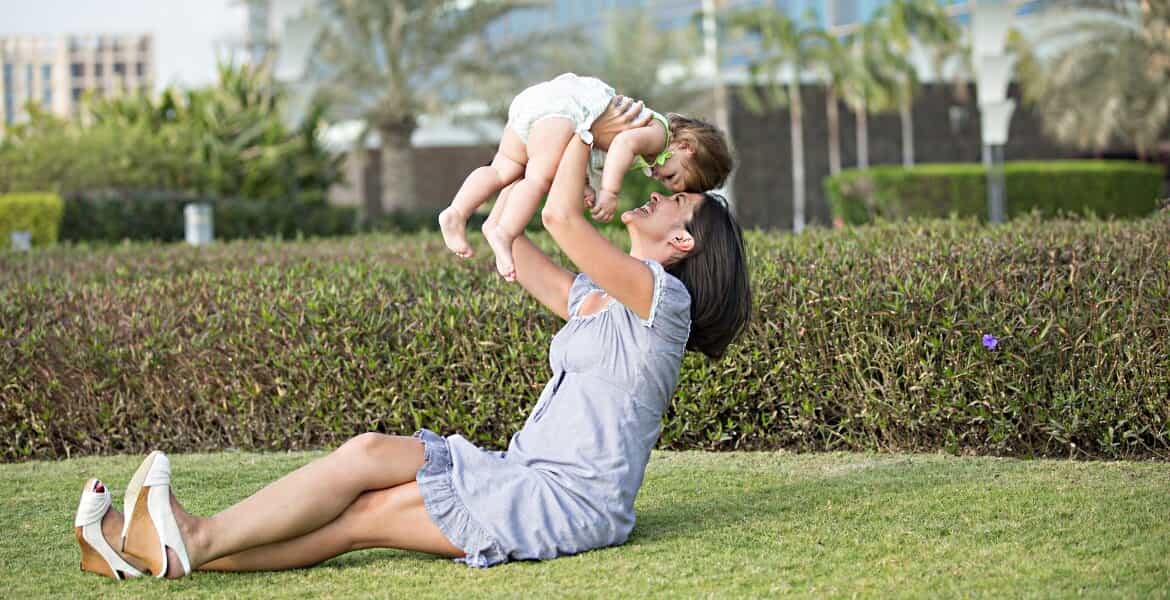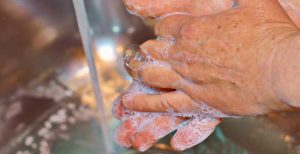Can you use Essential Oils for Children?
This is a common question. Especially as essential oils have become a very popular option for many families. After all, so many of us want to use natural products in our homes and for our kids.
But are Essential Oils safe to use for children? What precautions do you need to take? Which essential oils are ok to use? And which should you avoid?
It probably won’t surprise you to hear that you can’t just take recommendations for essential oil use for adults and use the same on your kids. But how do you use the essential oils safely?
In my experience as an aromatherapist, I have found that most children take amazingly well to aromatherapy. They are refreshingly honest in their opinions and will quickly tell you if they don’t like a particular aroma! They also respond quickly to the benefits of essential oils. It is as if, because they have not yet been subjected to the many toxins and chemicals that most of us have been exposed to for years, their bodies have a clearer and quicker reaction.
But there are some cautions that apply particularly to children and that we must consider in order to keep our precious little people safe.
The most important thing to remember is that most recipes and recommendations you will read in online or in books, will be designed for adults. Not all essential oils will be suitable for children, and the amounts used will almost certainly be too strong.
So it is important to check firstly that you are using suitable essential oils, and also that you are altering any recommendations to use amounts of essential oils that are suitable for children.
You will find that what is suitable will also change depending on the age of the child. What is suitable for a 10-year-old is unlikely to be suitable for a toddler.
Here are some basic safety principles for using essential oils for kids –
- Never leave any essential oil where a child can get to it. Instead, store them in a locked cupboard out of reach. A cool dark place is also best for the oils themselves.
- Always buy essential oils in bottles with an integrated dripolator, rather than an eyedropper. A dripolator will restrict the rate at which essential oils can come out of the bottle even when you take off the cap. Whereas once you remove an eyedropper cap the top of the bottle is fully open.
- Always refer to a reputable aromatherapy book written specifically for treating children, or consult a qualified aromatherapist, before deciding which oils to use.
- Always bear in mind the age of the child as what is appropriate will change as children grow. What is suitable for an 8 year old may not be suitable for a toddler. And what is suitable for a toddler may not be suitable for a newborn.
- Never use essential oils in a bath without mixing them in a dispersant. You can purchase specific essential oil dispersant or use a little unscented liquid soap or shampoo. If you add essential oils directly to a bath they will float on the surface where little fingers may pick them up and then find their way to eyes or mouths. Essential oils can also be diluted in carrier/vegetable oils before adding to the bath, but due to the fact that it can make the bath slippery, we do not usually recommended this method for children for safety reasons.
- Never use a vaporiser or oil burner with a naked flame in children’s bedrooms or anywhere where children can reach them. Instead use an ultrasonic diffuser or a waterless electric vaporiser as these will both reduce the risk of burns. (You should still not leave children unsupervised near these in case they touch the oil and get it on their skin.) Use diffusers for a limited time only with breaks in between, rather than using continually. (eg 30mins on, 60 mins off)
- Never apply essential oils neat or undiluted to any child’s skin. Always dilute appropriately for the age of the child.
My favourite essential oils for children (by age group) are –
Up to 3 years of age
- Lavender Essential Oil (Lavandula angustifolia) – a most versatile oil, relaxing and gentle. A drop mixed in a bowl of warm water is also useful for bathing minor cut and grazes.
- Chamomile Roman Essential Oil (Anthemis nobilis) – from the same plant we use for chamomile tea, so very calming and soothing.
- Mandarin Essential Oil (Citrus reticulata) – a very sweet “happy” citrus smell, mildly relaxing and calming.
3 to 10 years of age
the same essential oils as above plus –
- Geranium Essential Oil (Pelargonium graveolens)
- Pine Essential Oil (Pinus sylvestris)
- Frankincense Essential Oil (Boswellia carterii)
- Orange Sweet Essential Oil (Citrus sinensis)
- Lemon Essential Oil (Citrus limonum)
10+ years of age
From this age, we generally treat as for an adult, both in terms of the essential oils used, methods and dosage. However if you have concerns, don’t be afraid to continue to follow the guidelines for the next age group down. After all, all kids don’t grow or develop at the same rate!
Concentration and dilution rates
Babies under 12 months
Generally try to avoid regular use of essential oils – reserve them for specific conditions. For example for baby massage I usually recommend a plain oil such as sweet almond or jojoba. Babies’ skin is very delicate and therefore it can easily be irritated by using too much essential oil.
However if you decide to use any essential oil I would suggest dilution rates as follows –
- 1-2 drops essential oil per 50ml carrier oil for body application or massage
- 1 drop in a tablespoon of dispersant or unscented liquid soap for a bath
- 1 drop in a vaporiser or diffuser (use for 30 mins at a time only)
Toddlers from 12 months to 3 years
Essential oils can be useful for this age group for calming and aiding sleep. However as this group is more active, you need to take extra care about where you store and how you use your essential oils if you have toddlers in the house.
Appropriate dilutions for this age group –
- 5 drops essential oil per 50mls carrier oil for body application or massage
- 1-2 drops in a tablespoon of dispersant or unscented liquid soap for a bath
- 2-3 drops in a vaporiser or diffuser
Children from 3 to 10 years
At the upper end, these children are getting closer to the age when you can treat them as an adult. These dilutions give you a range with an upper limit suitable for most of the age group but feel free to lower the amount of oil if you wish –
- Up to 15 drops Essential Oil per 50ml carrier oil for body application or massage
- 3-4 drops Essential oil in a tablespoon of dispersant or unscented liquid soap for a bath
- 3-4 drops in a vaporiser or diffuser.
Remember that any parent or carer will know their child best, so if you ever notice a reaction to any essential oil, whether that be behaviour changes, a rash on the skin or anything else that concerns you, cease use of any essential oil and seek professional advice.
Essential oils are natural and usually very safe if you follow best practice guidelines.
(This information is meant as general advice. Please consult your health practitioner or a qualified aromatherapist for advice on your specific situation.)




